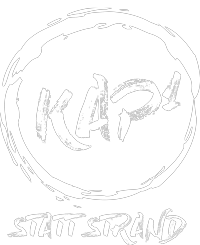Dry January: How to take a break from alcohol so you’ll actually stick with it
Instead, research found that casual drinkers felt that they could drink in excess during other periods of the year because of their participation in Dry January. She set new goals to make it to 90 days sober, then reached for a year. She’s now been alcohol-free for seven years and has used her life coaching certifications to mentor women who want to “break up with alcohol,” for Dry January — or for good. It’s not all sunshine and roses when we stop drinking – we can also expect moments where we are triggered to drink and have strong cravings. These are usually going to pop up at times where we used to have a drink – after work, when out with friends, driving past the bottle shop. Many Daybreak members have noted that having some replacements for alcohol (such as alcohol-free beer or wine, tasty refreshing drinks or herbal teas) can be great at stopping urges in their tracks.
The best way to support your loved ones who don’t want to drink alcohol is to make sure drinking feels like a choice — not an obligation. One thing that many listeners who’ve tried a dry January — or any break from alcohol — told us is that their friends didn’t really “get it.” “Why, why, why,” people told us they were asked. Alcohol abuse and addiction doesn’t just affect the person drinking—it affects their families and loved ones, too. Watching a family member struggle with a drinking problem can be as heartbreakingly painful as it is frustrating. But while you can’t do the hard work of overcoming addiction for your loved one, your love and support can play a crucial part in their long-term recovery.
Expert Tips For Reducing Your Alcohol Consumption
Assess what you want to change with regards to your drinking before you start again. Write down your goals, for example, drinking only a certain amount, having more water, or avoiding shots. “It might be easier for some people to maintain if they slowly reduce [alcohol intake] over time. But it’s also very tied to the context of their drinking.” Perhaps you’re on a cleanse and want to socialize without feeling tempted at dinners. Maybe you entertain clients for work and often feel pressure to drink, but you’d like to decrease your intake. It’s possible you’ve had one too many mornings of alcohol-induced lethargy and you’re just sick of it.

“There is early evidence that even taking a one month break from fairly low levels of consumption reduces some burden on the liver,” White says. While getting sober is an important first step, it is only the beginning of your recovery from alcohol addiction or heavy drinking. Rehab or professional treatment can get you started on the road to recovery, but to stay alcohol-free for the long term, you’ll need to build a new, meaningful life where drinking no longer has a place. Research shows that reduced intake of alcohol for moderate and heavy drinkers has broader health benefits, like better health and liver health. Six months after adults completed Dry January, participants reported drinking an average of one day less per week, according to a 2016 study published in a journal of the American Psychological Association. While Dry January only lasts a month, research shows that a reprieve from alcohol can help moderate to heavy drinkers see immediate benefits including weight loss, better diet, and a reduction in liver fat and blood sugar.
The work and reflection behind my booze-free month
“The whole point of a month off is that you’ll have a test at some point, an event or meal out and the trick is, can you turn that drink down? If all else fails, there are always memories of hangovers past to remind you why you quit drinking in the first place. Even if it seems like all of your friends are interested in going out for a drink, there’s no harm in suggesting an alternative plan. Kuda recommended saying “Hey, I’m not up for that,” and offering to host a mocktail night, or checking sites like Eventbrite for new things to do.
- “Telling other people about your plans to stop drinking can help you be accountable to your goal,” Dr Arunogiri says.
- Crystal Raypole has previously worked as a writer and editor for GoodTherapy.
- Detox can be done on an outpatient basis or in a hospital or alcohol treatment facility, where you may be prescribed medication to prevent medical complications and relieve withdrawal symptoms.
“Try eating a sweet potato or a baked potato instead. It will satisfy your carb deficiency and make you feel full, and the tryptophan in the sweet potato release the happy chemical dopamine in your brain.” If how to take a break from drinking you’re trying to shed a few pounds, keeping that goal in mind can be great a list-topper for why you’re quitting booze. Find a friend you can hang out with who doesn’t feel the need to drink to have fun.
Thinking about taking a break from alcohol? Here’s how to cut back or quit
Any information published on this website or by this brand is not intended as a substitute for medical advice, and you should not take any action before consulting with a healthcare professional. Build a sober social network – If your previous social life revolved around alcohol, you may need to make some new connections. It’s important to have sober friends who will support your recovery. Try taking a class, joining a church or a civic group, volunteering, or attending events in your community.


Leave a Reply
Want to join the discussion?Feel free to contribute!